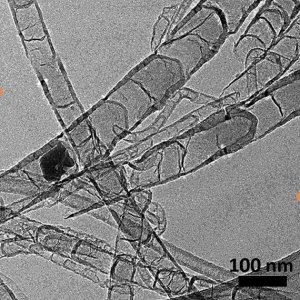Making green fuels, no fossils required
Converting solar or wind into carbon-based ‘fossil’ fuels might seem anything but green, but when you start with carbon dioxide — which can be dragged out of the air — it’s as green as it gets. The technology that makes it economically feasible isn’t available yet, but a recently published paper presents nice step forward in the effort to not just sequester carbon dioxide, but turn it into a useful fuel that is part of a carbon-neutral future.










